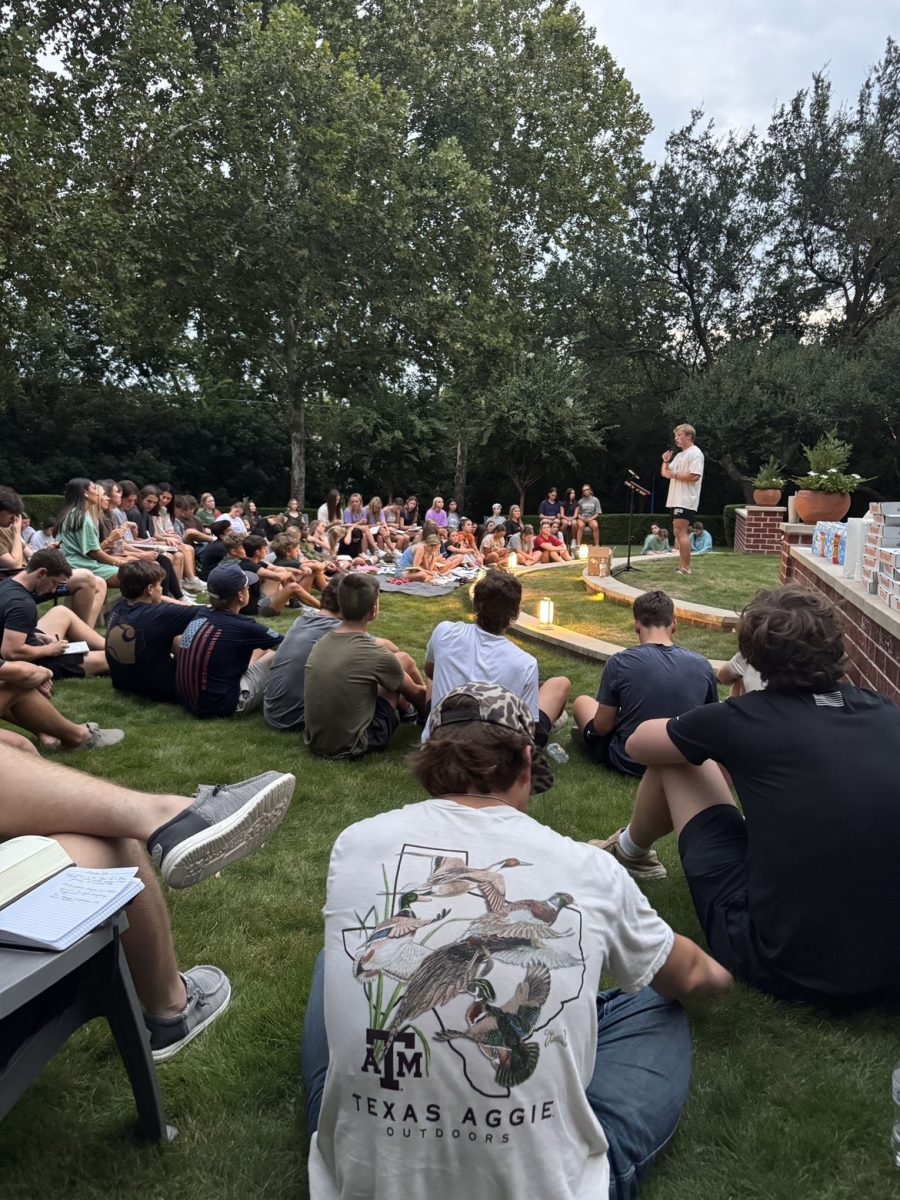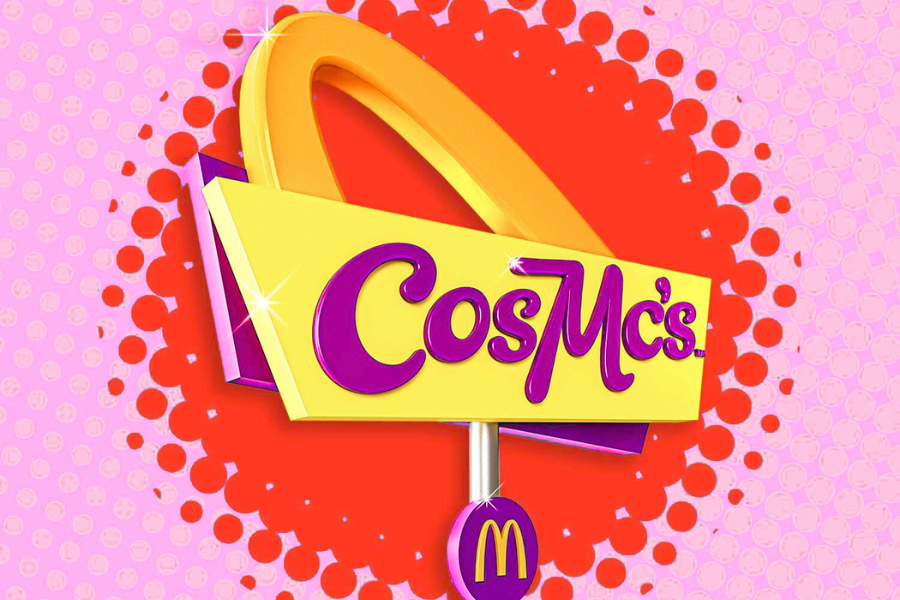Think Pre-AP Physics was hard? Think AP Calculus (or even Pre-Calculus) was hard? Try combining the two classes together, and then you have AP Physics C, which is considered one of the hardest classes on campus.
“I think that the content in this class is harder than anything students have ever done before. Period,” AP Physics C teacher Ted Heyduck said. “Not only is this an application of all their Physics concepts, it’s an application of all your calculus concepts, as well. Students really need to be fluid with being able to apply both mathematical and physics concepts together in order to solve a problem.”
The school offers two AP Physics class, B and C. This is the first year that AP Physics C has been offered.
“The difference between AP Physics B and AP Physics C is that B covers about a miles wide worth of content, but it only goes an inch deep,” Heyduck said. “Physics B doesn’t go very in depth into any of the concepts, but they cover a multitude of content. Physics C, on the other hand, goes an inch wide in coverage, but goes a mile deep into those concepts. It’s much more thorough and difficult than AP Physics B, and so it’s not able to cover nearly as many topics.”
According to Heyduck, upcoming seniors deciding between which class they should take, should do so with their major in mind.
“I would recommend a person to go with B if they want to go with any sort of non-science major, or any major that is not going to require Engineering level Physics,” Heyduck said. “C is really only meant for your math majors, engineering majors, physics majors, and astronomy majors.”
Another difference between the classes is that Physics B is Algebra based, whereas Physics C involves calculus. Calculus is a co-requirement for the class, and although the majority of students have previously taken calculus, it has not made the class any easier.
“The hardest part isn’t the calculus itself, because I already had a years’ worth of calculus under my belt, but it’s that we’ve never had to apply it to a real world situation, which this class does,” senior Michael Burdick said. “Having to combine calculus, which by itself is already difficult, with the Newtonian laws and magnetism and all the other physics concepts is when it just gets awful and complicated.”
Although many students take calculus their junior year, Heyduck doesn’t believe students that wait until their senior year are at a disadvantage.
“I think taking calculus and Physics C concurrently provides students with a good opportunity to learn the material in calculus and then apply it to what we’re doing in Physics,” he said. “Honestly, AP Physics C helps more with calculus than calculus helps with Physics C. Either way I see a net gain from taking both classes at the same time.”
Due to the time constraints of the class and the College Board’s requirement that the class be 20 percent lab based, students are obligated to come at either 7:30 Wednesday night or 7:00 Thursday morning to complete a mandatory lab.
“The purpose for the Wednesday night labs are to allow me to give students an opportunity for lab experiences in a manner that not only reflects what college lab experiences are like, but also, in terms of the way I structured the class,” Heyduck said. “I can keep the content in the class and apply it in the labs on Wednesday nights. Furthermore, it allows me to run my class according to the guidelines set by College Board.”
Although lab time is required, students have mixed feelings about the extra work.
“While the lazy brat in me wants to complain about having to go in Wednesday nights or Thursdays nights and do Physics, which isn’t exactly my idea of a night life, but, in reality, I think it’s a good idea to make us apply these obtuse and esoteric equations into a real life situation and see them work,” Burdick said. “I can see the labs translating into college, easily. College physics classes aren’t just going to have us sit and look at a book and do math problems, but they’re going to make us apply it.”
Other students are not as fond of the labs.
“I think the Wednesday night labs are a complete waste of time,” VanShuyver said. “We shouldn’t be asked to come in outside of school hours so frequently and do something that we should do in class.”
Outside of lab night, students can anticipate spending around an hour on physics every night, in order to complete all the work, readings, and practice problems. The workload may be too much forsome seniors, especially if they suffer from senioritis.
“Unlike most seniors, I was afraid of having a dull and easy senior year, so I decided instead to do something that I wouldn’t normally do and take a higher level science class that was difficult but potentially enjoyable,” Burdick said. “I would recommend the class for other students as long as they are okay with the class challenging them and if they have some sliver of work ethic, because otherwise they are going to get destroyed.”
Regardless of reasons for joining the class, Heyduck has made it his goal that students come out of AP Physics C knowing what college classes will be like.
“Almost all of the science college classes are rigorous, just like this class, and it gives students an opportunity to figure out how to work in a study group, since this class promotes them due to the difficulty of the content,” Heyduck said. “In addition to that, I try to teach it in a manner that goes over a number of different styles of teaching, which exposes students to a variety of situations they could encounter in college.”















Mr. Heyduck • Mar 5, 2013 at 9:33 pm
It is important to note that with great challenge comes great reward. The AP Physics C curriculum is broken up into Two AP Tests. This means you can qualify for twice the credit of a single AP class. In addition this possible experience, that of college level engineering physics, is of great importance to those students who want to pursue the careers specified in this article. I encourage all students to review the pros and cons of the choices that Lovejoy has to offer. For example it is worth noting that students have the option of double block scheduling if the work load is perceived to be too large. In addition, the homework assignments are trimmed and set in place with the intention of generating the most amount of benefit per problem. Labs are created and aligned with specific lab based AP questions that students will likely encounter on the AP exam. I encourage communication with either myself or Mr. Voth if you have any questions. I look forward to speaking with any student or parent who has comments or concerns with regards to this class.